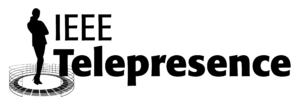Coming soon.
Thank You to Our 2022 In-kind Sponsors
-

Read MoreView Less
Over the last two decades our mission has evolved dramatically. First in the area of communications – Internet, wireless, and data transmission – and then into broader digital applications that improve our customers’ worlds every day, whether they’https://www.hawaiiantel.com/re residential, business or government. Hawaiian Telcom has become deeply engaged in a wide variety of new products and services. From the fiber that feeds your 4G wireless network to digital television. From VoIP Hosted Voice to virtual colocation. From enabling new office towers with fiber for greater connectivity to laying new undersea cables across the Pacific to Asia. Today, Hawaiian Telcom is offering 1 Gig broadband service, providing state-of-the-art cloud services for businesses, and expanding Hawaii’s largest next-generation fiber network. We employ more than 1,200 technology, communications and customer service professionals. We serve Hawai‘i, our home. And we’ll continue to serve Hawai‘i as we grow and expand. -

Read MoreView Less
Nalu Scientific, LLC develops high-end sensors and systems. Company staff and technical advisors have over 50 years of combined experience in developing microelectronics for astrophysics and high-energy physics (HEP) experiments as well as consumer markets. Our team includes senior engineers, physicists, IP, legal, and strategic business advisors. Founder Dr. Isar Mostafanezhad is a serial entrepreneur and university researcher with academic, industry, and business background in medical, wearable, and scientific sensors, including work on various microchips multi-channel giga samples-per-second (GSa/s) analog to digital and digital to analog converters. -

Read MoreView Less
IEEE Future Directions launched the IEEE 5G Initiative in December 2016. To better reflect the IEEE contribution to current and future generations of networking, the initiative was re-branded to IEEE Future Networks, with the tagline Enabling 5G and Beyond, in August 2018. The IEEE Future Networks Initiative will help pave a clear path through development and deployment of 5G and the great potential it enables, while envisioning the landscape of connectivity and applications beyond 5G. Recognizing that networking is larger than a single technology, standard, organization, or region, IEEE Future Networks is gathering the world’s researchers, scientists, engineers, and policymakers from industry, academia, and governments to solve the challenges and reveal the opportunities associated with current and future networks. -

Read MoreView Less
IEEE Standards Association (IEEE SA) is a leading consensus building organization that nurtures, develops and advances global technologies, through IEEE. We bring together a broad range of individuals and organizations from a wide range of technical and geographic points of origin to facilitate standards development and standards related collaboration. With collaborative thought leaders in more than 160 countries, we promote innovation, enable the creation and expansion of international markets and help protect health and public safety. Collectively, our work drives the functionality, capabilities and interoperability of a wide range of products and services that transform the way people live, work, and communicate. -

Read MoreView Less
The IEEE Industry Engagement Committee facilitates industry engagement activities across IEEE, identifies and acts on opportunities, gaps and overlaps across IEEE, launches initiatives and recommends to the IEEE Board needed development of products and services that meet the needs of industry, government and industry professionals. -

Read MoreView Less
This initiative serves to enable the coming Digital Transformation through collaboration among technologists, engineers, regulators, and ethicists. The Digital Transformation is fueled by advances in sensors and actuators, artificial intelligence (AI), and machine learning (ML). By leveraging these technologies and others, such as augmented reality (AR), virtual reality (VR), and Digital Twins, the line between the physical world and the digital world will be increasingly less distinct. -

Read MoreView Less
IEEE Future Directions, in association with Societies, Councils and OUs anticipates and determines the direction of existing, new, and emerging technologies and related issues, and spearheads their investigation and development by IEEE. Future Directions is committed to bringing you the best knowledge, resources, and opportunities in emerging technologies within IEEE. -

Read MoreView Less
Smart Lighting fits perfectly with the IEEE mission for Advancing Technology for Humanity because artificial light generation is an inherent need of human beings and society. This project seeks to understand the interactions between the components of a complex SL system including the end-user behavior and evaluating the impacts on energy, environment and resources.
-

Read MoreView Less
The Telepresence small project aims to create a technical community to facilitate cross-disciplinary collaboration and coordination to advance research, standardization, and development of engineering and technology to advance the development of telepresence and to facilitate its integration in products and services improving work productivity, enabling remote work with high conditions of human supervision, emphasizing human-oriented added value and increasing quality of life.
-

Read MoreView Less
This small project consolidates various distributed LEO SatS activities and provides a focus on education and awareness. The intended impact of this small project is to:
1. Attract high-quality university and college students to IEEE through the collaboration with young and seasoned professionals.
2. Attract talented high-school students to provide them with the activities that they would not have otherwise.
3. Increase cooperation in LEO SatS between professionals in academia, industry, military, and government.



